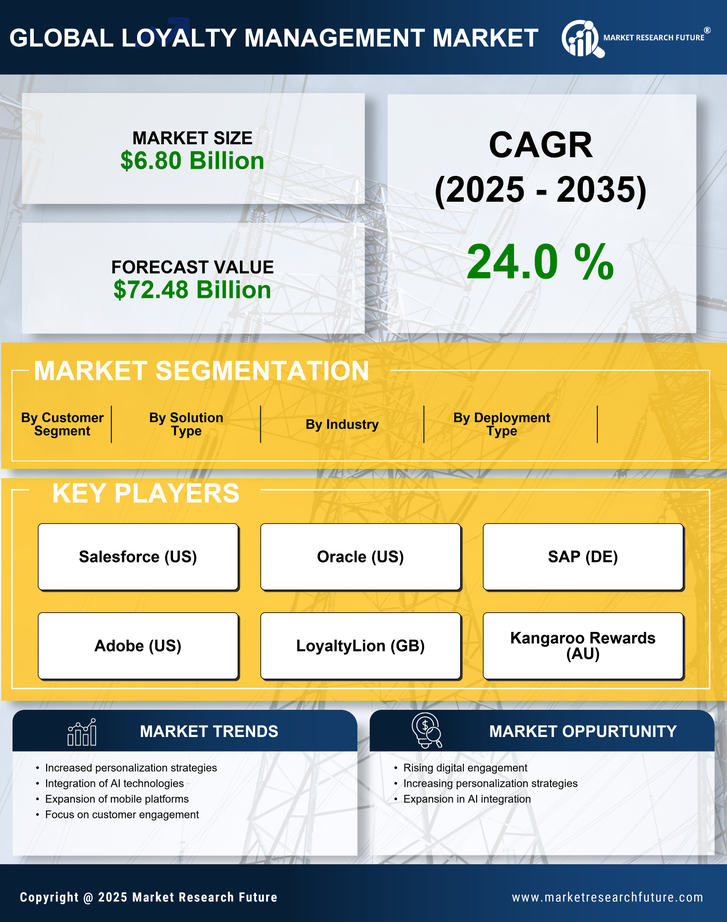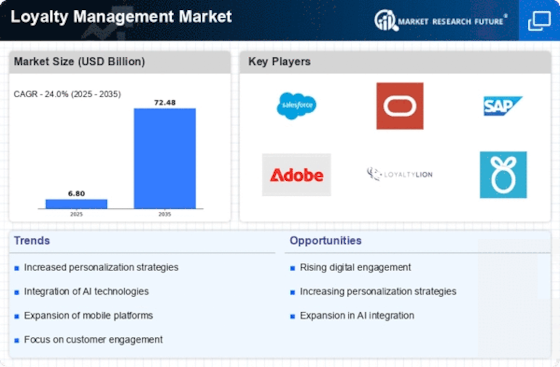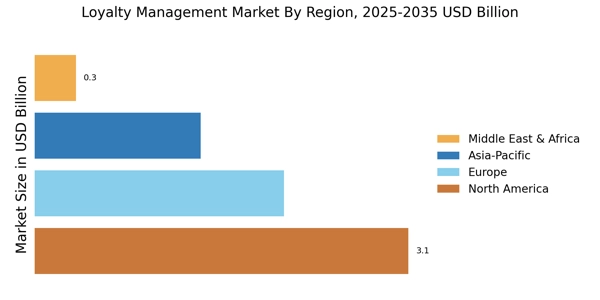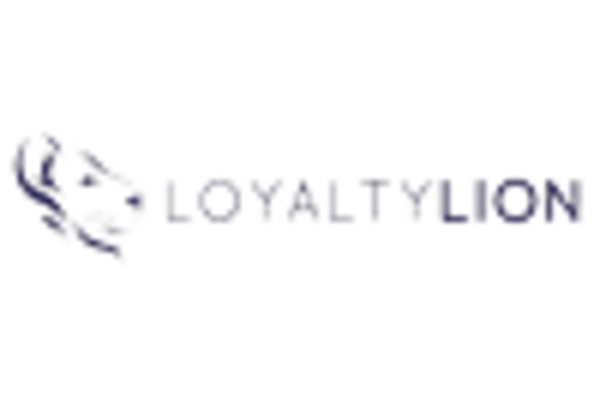Technological Advancements
Technological advancements are playing a pivotal role in the Loyalty Management Market, as businesses increasingly adopt sophisticated tools and platforms to enhance their loyalty programs. The integration of artificial intelligence and machine learning allows for more effective data analysis, enabling companies to predict customer behavior and preferences. Recent statistics indicate that organizations utilizing advanced technology in their loyalty strategies have seen a 20% increase in customer retention rates. Furthermore, mobile applications and digital wallets are becoming essential components of loyalty programs, facilitating seamless customer interactions. As technology continues to evolve, it is expected that the Loyalty Management Market will witness further innovations that enhance customer engagement and satisfaction.
Increasing Consumer Expectations
The Loyalty Management Market is currently experiencing a shift in consumer expectations, as customers increasingly demand personalized experiences and rewards. This trend is driven by the proliferation of data analytics and customer insights, which enable businesses to tailor their loyalty programs to individual preferences. According to recent data, approximately 70% of consumers express a preference for brands that offer personalized rewards. As a result, companies are compelled to enhance their loyalty strategies to meet these expectations, thereby fostering customer retention and engagement. This evolution in consumer behavior is likely to shape the future of loyalty management, pushing businesses to innovate and adapt their offerings to remain competitive in the Loyalty Management Market.
Shift Towards Omnichannel Engagement
The Loyalty Management Market is witnessing a notable shift towards omnichannel engagement strategies, as businesses recognize the importance of providing a cohesive customer experience across multiple platforms. This approach allows companies to interact with customers through various touchpoints, including online, in-store, and mobile channels. Research indicates that brands employing omnichannel strategies can achieve a 30% increase in customer loyalty. By integrating loyalty programs across these channels, businesses can create a more unified and rewarding experience for their customers. This trend is likely to continue shaping the Loyalty Management Market, as companies strive to enhance customer satisfaction and loyalty through seamless interactions.
Emergence of Data-Driven Decision Making
The emergence of data-driven decision making is significantly influencing the Loyalty Management Market. Companies are increasingly leveraging data analytics to inform their loyalty strategies, allowing for more targeted and effective marketing efforts. By analyzing customer behavior and preferences, businesses can tailor their loyalty programs to better meet the needs of their audience. Current trends indicate that organizations utilizing data-driven approaches in their loyalty management efforts are experiencing higher engagement rates and improved customer satisfaction. This shift towards data-centric strategies is expected to continue shaping the Loyalty Management Market, as businesses strive to enhance their competitive edge through informed decision making.
Growing Importance of Customer Retention
In the Loyalty Management Market, the growing importance of customer retention is becoming increasingly evident. Businesses are recognizing that retaining existing customers is often more cost-effective than acquiring new ones. Recent studies suggest that increasing customer retention rates by just 5% can lead to a profit increase of 25% to 95%. This realization is prompting companies to invest more in loyalty programs that not only reward repeat purchases but also foster long-term relationships with customers. As a result, the focus on customer retention is likely to drive innovation and investment in the Loyalty Management Market, as businesses seek to create more effective and engaging loyalty strategies.


















